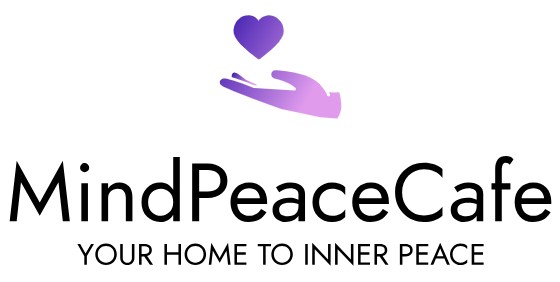Unlocking Inner Peace: The Life-Changing Power of Daily Meditation

From the depths of stress and anxiety to a life of peace, calmness, and spiritual growth, the journey of transformation is a powerful one. And it all starts with a simple yet profound practice: daily meditation. In this article, we’ll delve into the real-life stories of individuals who have overcome the crippling effects of stress and anxiety through meditation, and explore the science behind how it works. We’ll also discover how meditation can be a powerful tool for spiritual growth, self-awareness, and connection with oneself and the universe.
As we navigate the challenges of modern life, it’s easy to get caught up in the whirlwind of stress, anxiety, and uncertainty. But what if we told you that there’s a way to break free from the cycle of stress and find a sense of inner peace and calmness? Meditation is not just a practice, but a journey of self-discovery, spiritual growth, and transformation. It’s a journey that can help you uncover your true nature, find your purpose, and connect with the world around you.
In the following pages, we’ll explore the profound impact of daily meditation on spiritual growth, and discover how it can lead to a deeper connection with oneself and the universe. We’ll also learn practical tips for incorporating meditation into our daily routine, and discover the resources and tools we need to get started. So, join us on this uplifting journey of transformation, and discover how daily meditation can be the key to unlocking a life of peace, calmness, and spiritual growth.
1. The Dark Cloud of Stress: How Meditation Can Be a Lifesaver
Stress is a formidable foe that can affect anyone, regardless of age, background, or circumstances. It’s a feeling of being overwhelmed, anxious, and uncertain, and it can have a devastating impact on our mental and physical health. Chronic stress can lead to a weakened immune system, cardiovascular disease, and even depression. But amidst the darkness of stress, there’s a beacon of hope: meditation.
Daily meditation has been proven to be a powerful tool in reducing anxiety and finding inner calm. By dedicating just a few minutes each day to mindfulness and meditation, we can begin to rewire our brains to respond to stress in a more positive way. Studies have shown that regular meditation can decrease the production of stress hormones like cortisol, leading to a decrease in anxiety and an increase in feelings of calm and relaxation. Moreover, meditation can help us develop a greater sense of self-awareness, allowing us to better understand our thoughts, emotions, and behaviors, and make positive changes to reduce stress.
In a world where stress is an ever-present reality, it’s more important than ever to take control of our mental health. By incorporating meditation into our daily routine, we can take the first step towards a life of peace, calmness, and inner peace. So why not take a deep breath, sit comfortably, and let the transformative power of meditation begin to work its magic?
The Science Behind Stress and Meditation
The science behind stress and meditation is a fascinating topic that has garnered significant attention in recent years. Research has shown that meditation can have a profound impact on the brain, rewiring it to reduce stress and increase happiness. According to Harvard Health Publishing, meditation can alter the brain’s structure and function, leading to a decrease in the production of stress hormones like cortisol. This, in turn, can lead to a decrease in anxiety and a sense of calmness.
One of the key ways in which meditation affects the brain is by increasing the production of neurotransmitters like serotonin and dopamine, which are responsible for regulating mood and emotions. Meditation has also been shown to increase grey matter in the brain, which is associated with attention, emotion regulation, and memory. Moreover, regular meditation can lead to a decrease in the activity of the amygdala, the part of the brain responsible for the fight-or-flight response, which is often triggered by stress.
The implications of this research are profound, suggesting that meditation can be a powerful tool in the management of stress and anxiety. By incorporating meditation into our daily routine, we can take control of our mental health and wellbeing, and begin to experience the many benefits of reduced stress and increased happiness. So why not take a deep breath, and let the science of meditation work its magic?
From Panic to Peace: Real-Life Stories of Stress Reduction
Meet Sarah, a busy working mom who was struggling to cope with the demands of her daily life. She was constantly anxious, stressed, and on edge, feeling like she was on the verge of a breakdown. That was until she discovered meditation. With just a few minutes of daily meditation, Sarah began to feel a sense of calmness and clarity that she had never experienced before. She was able to tackle her daily tasks with ease, and her relationships with her family and friends improved dramatically.
Then there’s John, a former athlete who was struggling to cope with the loss of his identity after a career-ending injury. He was plagued by anxiety and depression, feeling like he had lost his purpose in life. But through meditation, John was able to find a new sense of purpose and direction. He started to focus on his breath, letting go of his negative thoughts and emotions, and slowly but surely, he began to rebuild his life. Today, John is a successful business owner, and he credits meditation for his transformation.
These are just a few examples of the many people who have overcome anxiety and stress through daily meditation. Their stories are a testament to the power of meditation, and a reminder that no matter what challenges we may face, we always have the ability to transform our lives. By incorporating meditation into our daily routine, we can begin to experience the same sense of peace, calmness, and clarity that Sarah and John have. So why not take the first step towards a life of peace and tranquility?
2. Awakening to Inner Peace: The Role of Meditation in Spiritual Growth

Meditation is a powerful catalyst for spiritual growth, allowing us to tap into the deepest recesses of our being and connect with something greater than ourselves. As we quiet the mind and focus on the present moment, we begin to awaken to our true nature, revealing the essence of who we are and what we are capable of. This profound self-awareness is the foundation of spiritual growth, enabling us to let go of limitations, fears, and doubts, and step into our highest potential.
Through meditation, we can experience a deeper sense of connection with the universe, feeling a sense of oneness with all that exists. This connection is not just a intellectual concept, but a lived experience that permeates every aspect of our being. As we cultivate this sense of connection, we begin to see the world in a new light, recognizing the intricate web of relationships that binds us together. We start to feel a sense of responsibility, compassion, and empathy towards all beings, and our actions become guided by a deeper sense of purpose and meaning.
As we awaken to inner peace, we begin to see the world through new eyes, eyes that are no longer clouded by fear, anxiety, and stress. We start to experience life in all its beauty, wonder, and magic, and our hearts are filled with gratitude, joy, and love. This is the true power of meditation, to awaken us to our highest potential, to connect us with the universe, and to guide us on the path of spiritual growth.
The Connection Between Meditation and Self-Discovery
One of the most profound benefits of meditation is its ability to help us uncover our true nature and purpose. When we quiet the mind and focus on the present moment, we begin to tap into our deepest desires, values, and passions. Through meditation, we can gain a deeper understanding of what drives us, what makes us happy, and what gives our life meaning. This self-awareness is the foundation of living a fulfilling life, and meditation is a powerful tool for unlocking it.
As we meditate, we begin to peel away the layers of conditioning, expectations, and societal pressures that have shaped our lives. We start to see ourselves as we truly are, rather than who we think we should be. This process of self-discovery can be both liberating and empowering, allowing us to break free from the constraints of our past and step into our highest potential. With a clear understanding of our true nature and purpose, we can make choices that align with our values, pursue our passions, and live a life that is authentic and meaningful.
The connection between meditation and self-discovery is deeply rooted in the practice of mindfulness. By cultivating mindfulness, we become more aware of our thoughts, emotions, and bodily sensations, allowing us to better understand ourselves and our place in the world. As we continue to meditate and explore our inner world, we begin to uncover the hidden patterns, beliefs, and desires that shape our lives. This journey of self-discovery is a lifelong process, and meditation is a powerful tool for guiding us along the way.
The Power of Meditation in Cultivating Empathy and Compassion
Meditation is a powerful tool for cultivating empathy and compassion, allowing us to connect with others on a deeper level and experience a greater sense of unity and understanding. When we meditate, we quiet the mind and focus on the present moment, allowing us to tap into our innate capacity for compassion and empathy. This increased sense of connection with others leads to greater spiritual growth, as we begin to see ourselves in others and recognize our shared humanity.
As we meditate, we begin to develop a sense of loving-kindness towards ourselves and others, recognizing that we are all deserving of love, compassion, and understanding. This sense of loving-kindness is the foundation of empathy and compassion, allowing us to connect with others on a deeper level and respond to their needs with kindness and care. Meditation also helps us to develop a greater sense of emotional intelligence, allowing us to better understand and manage our emotions, and respond to the emotions of others with empathy and compassion.
The power of meditation in cultivating empathy and compassion is rooted in its ability to increase our sense of interconnectedness with others. As we meditate, we begin to see that we are not isolated individuals, but rather, we are all part of a larger web of relationships. This sense of interconnectedness leads to a greater sense of responsibility and compassion towards others, as we recognize that our actions have a ripple effect on the world around us. By cultivating empathy and compassion through meditation, we can create a more harmonious and compassionate world, one that is based on love, kindness, and understanding.
3. Daily Meditation: A Simple Yet Powerful Tool for Spiritual Progress
Daily meditation is a simple yet powerful tool for achieving spiritual growth and inner peace. By incorporating meditation into our daily routine, we can experience a profound sense of calm, clarity, and connection to ourselves and the world around us. Meditation is not a complicated or time-consuming practice, but rather a simple and accessible way to cultivate a deeper sense of awareness and understanding.
One of the most effective ways to incorporate meditation into our daily routine is to start small. Beginning with just a few minutes of meditation each day, we can gradually increase our practice as we become more comfortable with the technique. It’s also important to find a quiet and comfortable space to meditate, free from distractions and interruptions. By creating a consistent and peaceful environment, we can establish a strong foundation for our meditation practice.
The key to successful daily meditation is consistency and commitment. By making meditation a non-negotiable part of our daily routine, we can experience a profound sense of transformation and growth. With regular practice, we can develop greater self-awareness, clarity, and inner peace, leading to a more fulfilling and meaningful life. By incorporating meditation into our daily routine, we can take the first step towards a life of spiritual growth, inner peace, and harmony.
The Benefits of Starting Small: A 5-Minute Meditation Practice
When it comes to meditation, many people think they need to set aside a significant amount of time to reap the benefits. But the truth is, even a short daily meditation practice can have a profound impact on your mental and emotional well-being. A 5-minute meditation practice, for example, can be a powerful way to reduce stress, increase focus, and boost mood.
One of the main benefits of starting small is that it’s more manageable and sustainable. Committing to a 5-minute meditation practice each day is far more achievable than trying to set aside 30 minutes or an hour. And yet, the benefits are still significant. Research has shown that even short periods of meditation can increase grey matter in the brain, improve cognitive function, and reduce symptoms of anxiety and depression.
The key is to be consistent and make meditation a non-negotiable part of your daily routine. By starting small, you can build a strong foundation for your meditation practice and gradually increase the duration as you become more comfortable with the technique. With a 5-minute meditation practice, you can experience a sense of calm and clarity that will stay with you throughout the day, and set yourself up for a life of greater well-being and happiness.
Making Meditation a Habit: Tips for Incorporating It into Your Daily Routine
Making meditation a habit can seem daunting, especially for those with busy schedules. However, with a few simple tips and tricks, you can incorporate meditation into your daily routine and reap the numerous benefits it has to offer. One of the most effective ways to make meditation a habit is to start by anchoring it to an existing daily routine. For example, try meditating immediately after waking up or right before bed. This way, meditation becomes a non-negotiable part of your daily routine, just like brushing your teeth or taking a shower.
Another key tip is to schedule meditation into your daily planner or calendar. Treat it as a non-negotiable appointment with yourself, and make sure to prioritize it above other commitments. You can also try setting a specific meditation spot in your home, such as a quiet corner or a designated meditation room, to make it easier to get into a meditative state. By creating a consistent and peaceful environment, you can make meditation a habit that brings calm, clarity, and joy to your daily life.
Finally, don’t be too hard on yourself if you miss a day or two. The key is to be consistent, but not perfect. With regular practice, you’ll start to notice the benefits of meditation and it will become easier to make it a habit. Remember, every minute counts, and even a short meditation practice can have a profound impact on your mental and emotional well-being. By incorporating meditation into your daily routine, you can take the first step towards a life of greater peace, clarity, and fulfillment.
4. From Blessed to a Blessing: The Ripple Effect of Spiritual Progress
As we embark on a journey of spiritual growth through daily meditation, we may not realize the profound impact it can have on those around us. But the truth is, our spiritual progress can have a far-reaching ripple effect, benefiting not only ourselves but also our loved ones, community, and even the world at large. When we cultivate inner peace, compassion, and understanding through meditation, we become more patient, empathetic, and kind-hearted individuals. This, in turn, can lead to more harmonious relationships, stronger bonds, and a greater sense of connection with others.
As we grow spiritually, we may find ourselves becoming more tolerant, forgiving, and understanding. We may become more willing to lend a helping hand, offer a listening ear, or provide a comforting presence to those in need. Our spiritual progress can also inspire others to embark on their own journey of self-discovery, creating a ripple effect of positivity and growth. Moreover, as we become more aware of our interconnectedness with the world, we may feel compelled to make a positive impact on our environment, community, and society as a whole.
The ripple effect of spiritual growth through daily meditation is truly boundless. As we continue to cultivate our inner selves, we can create a wave of love, compassion, and kindness that can touch the lives of countless individuals. By embracing the power of meditation, we can become a source of inspiration, hope, and light in the world, spreading joy, peace, and harmony to all those around us.
The Domino Effect of Meditation: How It Can Positively Impact Those Around You
When we practice meditation, we may think it’s just a personal journey, but the truth is, it can have a profound impact on those around us. As we cultivate kindness, compassion, and empathy through meditation, we become more understanding and tolerant individuals. We begin to see the world from a different perspective, and our interactions with others become more meaningful and compassionate. This, in turn, can create a ripple effect of positivity, inspiring others to do the same.
Meditation has been shown to increase feelings of empathy and compassion, making us more willing to lend a helping hand or offer a listening ear. We become more patient, understanding, and gentle, and our relationships with others begin to flourish. As we practice meditation, we may find ourselves becoming more active in our communities, volunteering, or participating in charitable activities. We may also become more environmentally conscious, making choices that benefit the planet and its inhabitants.
The positive impact of meditation on those around us is undeniable. By practicing meditation, we can become a source of inspiration, hope, and kindness, spreading joy and positivity to all those around us. As we cultivate inner peace, we become more compassionate, empathetic, and understanding, creating a world that is more harmonious, loving, and kind. By embracing the power of meditation, we can create a domino effect of positivity, spreading love and kindness to all those around us.
Paying It Forward: The Power of Meditation in Creating a More Compassionate World
As we deepen our meditation practice, we may find ourselves becoming more aware of the interconnectedness of all living beings. This growing sense of unity and compassion can inspire us to take action, making a positive impact on the world around us. By cultivating a sense of social responsibility, we can become driven to create change, using our unique skills and talents to make a difference. Whether it’s volunteering, advocating for a cause, or simply being a good neighbor, meditation can inspire us to pay it forward, spreading love and kindness to all those around us.
Meditation can also help us develop a greater sense of empathy, understanding, and compassion for those who are struggling. By putting ourselves in others’ shoes, we can gain a deeper appreciation for the challenges they face, and become more motivated to help. This can lead to a greater sense of community and social responsibility, as we work together to create a more just and equitable world. By embracing the power of meditation, we can become a force for positive change, inspiring others to do the same.
As we continue to meditate and grow, we may find ourselves becoming more aware of the intricate web of connections that binds us all together. We can begin to see that our individual actions have a ripple effect, impacting not only our own lives but the lives of those around us. By embracing this sense of interconnectedness, we can become more mindful of our actions, making choices that promote harmony, love, and kindness. Through meditation, we can create a more compassionate world, one that is filled with love, understanding, and a deep sense of connection to all living beings.
5. Beyond the Stories: A Call to Action for Your Own Spiritual Journey
As we’ve explored the transformative power of meditation, we hope that you’ve been inspired to take the first step towards your own spiritual journey. Meditation is a journey that can be tailored to your unique needs and goals, and can be adapted to fit into even the busiest of schedules. Whether you’re seeking to reduce stress, increase feelings of joy and compassion, or simply find a deeper sense of connection to yourself and the world around you, meditation can be a powerful tool.
To get started, you don’t need to have any special skills or knowledge – just a willingness to show up and commit to your practice. You can begin with just a few minutes a day, and gradually increase your practice as you become more comfortable with the process. There are countless resources available to support you on your journey, from guided meditations and apps to books and online courses. The most important thing is to take that first step, and to be patient and kind with yourself as you embark on this journey.
Remember, the benefits of meditation are not just about what you can achieve, but about who you can become. As you cultivate a deeper sense of inner peace, compassion, and connection, you’ll become more confident, more resilient, and more fully alive. So take the first step today, and discover the transformative power of meditation for yourself. You never know where this journey may lead you, but one thing is certain – you’ll be forever changed by the experience.
Taking the First Step: A Beginner’s Guide to Daily Meditation
Congratulations on taking the first step towards incorporating daily meditation into your life! As a beginner, it’s natural to feel a little uncertain about where to start, but don’t worry – we’ve got you covered. Our beginner’s guide to daily meditation is designed to provide you with everything you need to get started, from tips and resources to inspiration and motivation.
First, let’s talk about the basics. Meditation is a practice that can be done anywhere, at any time, and in any position. You don’t need any special equipment or training – just a willingness to show up and commit to your practice. Start with just a few minutes a day, and gradually increase your practice as you become more comfortable with the process. You can use a guided meditation app or video to help you get started, or simply focus on your breath and let your mind settle.
As you begin your meditation journey, remember to be patient and kind with yourself. It’s okay if your mind wanders – simply acknowledge the thought and gently bring your focus back to your breath. Don’t worry if you don’t feel like you’re doing it ‘right’ – the most important thing is that you’re showing up and committing to your practice. With consistency and patience, you’ll begin to experience the many benefits of meditation, from reduced stress and anxiety to increased feelings of joy and compassion. So take a deep breath, get comfortable, and let’s get started!
Join the Movement: Connecting with a Community of Like-Minded Individuals
As you embark on your spiritual journey, it’s essential to remember that you’re not alone. There are countless individuals around the world who are also seeking to cultivate a deeper sense of inner peace, compassion, and connection. Joining a community of like-minded individuals can provide you with the support, motivation, and inspiration you need to stay on track and continue growing.
From online forums and social media groups to meditation apps and virtual retreats, there are countless resources available to connect you with others who share your values and goals. These communities can provide you with a sense of belonging and accountability, as well as access to valuable resources and expertise. Whether you’re seeking guidance, support, or simply a sense of connection, joining a community of like-minded individuals can be a powerful way to accelerate your spiritual growth.
So why not take the first step today? Search for online communities, apps, and resources that resonate with your values and goals. Join a meditation group, attend a virtual retreat, or connect with others on social media. As you do, you’ll discover a sense of camaraderie and connection that will support and motivate you on your spiritual journey. Remember, you’re not alone – and together, we can create a more compassionate, loving, and peaceful world.
How often should I meditate to see results?
Consistency is key when it comes to meditation. Aim to meditate at least 3-4 times a week, with a minimum of 5-10 minutes per session. As you get more comfortable with the practice, you can gradually increase the frequency and duration of your meditation sessions.
What’s the best way to overcome mind-wandering during meditation?
Don’t worry, it’s normal for your mind to wander during meditation! Gently acknowledge the thought and bring your focus back to your breath or chosen meditation anchor. Remember, the goal isn’t to achieve a completely blank mind, but to cultivate awareness and presence.
Can meditation really help with stress and anxiety?
Absolutely! Meditation has been scientifically proven to reduce stress and anxiety by regulating the body’s response to stress hormones, promoting relaxation, and increasing feelings of calm and well-being. Regular meditation practice can help you develop a greater sense of resilience and emotional balance.
How do I fit meditation into my busy schedule?
Start small! Even just 2-3 minutes of meditation per day can be beneficial. Try incorporating meditation into your daily routine, such as right after waking up or before bed. You can also use meditation apps or guided sessions to help you stay on track.
What’s the difference between meditation and mindfulness?
While often used interchangeably, meditation and mindfulness are related but distinct practices. Meditation typically involves focusing on a specific anchor, such as the breath, to cultivate a deeper sense of inner peace and awareness. Mindfulness, on the other hand, is the practice of being present and fully engaged in the current moment, often in daily activities. Both practices can complement each other and enhance your overall well-being.




